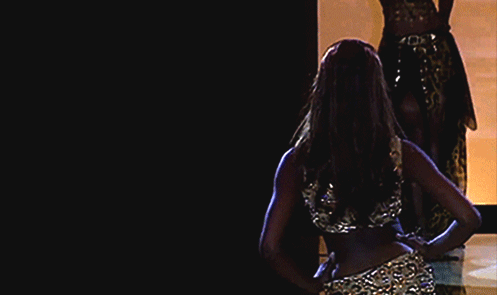Post by Minimal on Mar 5, 2016 18:19:17 GMT -8
Aww, I actually wanted to go see this movie before learning about this, but I totally see the connection here.
Disney’s newest animated feature Zootopia, out Friday, is good! The concept—it’s about a city of anthropomorphic animals in which predators and prey peacefully coexist—is creative. The animation is vibrantly beautiful. I loved its hero, eager rookie cop Judy Hopps (voice of Ginnifer Goodwin), and her foil, the con-artist fox Nick Wilde (Jason Bateman). It’s got great sloth jokes! Jenny Slate voices a sheep! It’s really fun.
It’s also 100 percent about racial profiling: Just as the message of Frozen is that sisterly love can conquer all, the message of Zootopia is that racial profiling by police and society is bad. That is a surprising and welcome choice for a children’s movie, especially one from a company as traditionally risk-averse as Disney. But it’s true!
In the city of Zootopia, predators and prey recall that in the dark ages they were wild and hunted each other, but in modern, civilized times, they live side by side. But just as racial misunderstanding and inequity undergirds American society, the relationship between predators and prey in Zootopia isn’t as simple as it might seem. Predators often tend to end up in positions of power; the mayor of the city, for example, is an enormous, gregarious lion (J.K. Simmons), while his deputy mayor is a fussy little sheep (Slate) who suspects she just got the job to appeal to the prey vote. Hopps is bullied as a little bunny by a fox pup who reminds her that his kind used to eat her kind. And Wilde and other predators get angry when the cops—and the city—begin to suspect that predators are more prone to wild, violent behavior than prey are.
True, the racial dynamics of Zootopia are a little scattershot. Predators hold institutional power but are also a discriminated-against minority; bunnies are part of the prey majority but Hopps, Zootopia's first bunny cop, has to convince her biased water-buffalo chief she knows what she’s doing. (“I’m not just a token bunny!”) The movie gets laughs from some surprisingly touchy racial material: “A bunny can call another bunny cute, but you can’t,” Hopps scolds Wilde. Later, another character gets reprimanded for an impropriety that, famously, black men and women have to deal with all the time: “You can’t just touch a sheep’s wool!”
But as broad as the movie sometimes plays, it delivers a clear message that when individuals prejudge others based on their heritage—or when a police force cracks down on a certain kind of person based only on their own bias and fear—people get hurt and treated unfairly. It’s a welcome issue for a kids’ movie to tackle, and it should be interesting to see what kinds of responses this well-marketed, highly-anticipated soon-to-be-blockbuster receives, and what conversations between parents and children it sparks.
Source: www.slate.com/blogs/browbeat/2016/03/02/disney_s_zootopia_has_a_message_for_kids_about_racial_profiling.html
Disney's Zootopia Is a Delightful Kids’ Movie That Is Also Totally About Racial Profiling


Disney’s newest animated feature Zootopia, out Friday, is good! The concept—it’s about a city of anthropomorphic animals in which predators and prey peacefully coexist—is creative. The animation is vibrantly beautiful. I loved its hero, eager rookie cop Judy Hopps (voice of Ginnifer Goodwin), and her foil, the con-artist fox Nick Wilde (Jason Bateman). It’s got great sloth jokes! Jenny Slate voices a sheep! It’s really fun.
It’s also 100 percent about racial profiling: Just as the message of Frozen is that sisterly love can conquer all, the message of Zootopia is that racial profiling by police and society is bad. That is a surprising and welcome choice for a children’s movie, especially one from a company as traditionally risk-averse as Disney. But it’s true!
In the city of Zootopia, predators and prey recall that in the dark ages they were wild and hunted each other, but in modern, civilized times, they live side by side. But just as racial misunderstanding and inequity undergirds American society, the relationship between predators and prey in Zootopia isn’t as simple as it might seem. Predators often tend to end up in positions of power; the mayor of the city, for example, is an enormous, gregarious lion (J.K. Simmons), while his deputy mayor is a fussy little sheep (Slate) who suspects she just got the job to appeal to the prey vote. Hopps is bullied as a little bunny by a fox pup who reminds her that his kind used to eat her kind. And Wilde and other predators get angry when the cops—and the city—begin to suspect that predators are more prone to wild, violent behavior than prey are.
True, the racial dynamics of Zootopia are a little scattershot. Predators hold institutional power but are also a discriminated-against minority; bunnies are part of the prey majority but Hopps, Zootopia's first bunny cop, has to convince her biased water-buffalo chief she knows what she’s doing. (“I’m not just a token bunny!”) The movie gets laughs from some surprisingly touchy racial material: “A bunny can call another bunny cute, but you can’t,” Hopps scolds Wilde. Later, another character gets reprimanded for an impropriety that, famously, black men and women have to deal with all the time: “You can’t just touch a sheep’s wool!”
But as broad as the movie sometimes plays, it delivers a clear message that when individuals prejudge others based on their heritage—or when a police force cracks down on a certain kind of person based only on their own bias and fear—people get hurt and treated unfairly. It’s a welcome issue for a kids’ movie to tackle, and it should be interesting to see what kinds of responses this well-marketed, highly-anticipated soon-to-be-blockbuster receives, and what conversations between parents and children it sparks.
Source: www.slate.com/blogs/browbeat/2016/03/02/disney_s_zootopia_has_a_message_for_kids_about_racial_profiling.html







